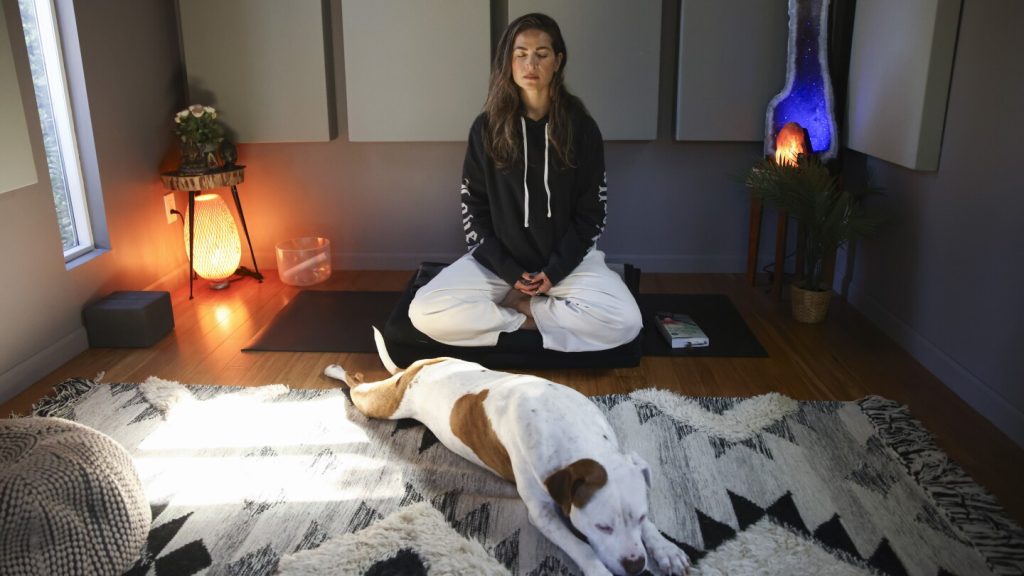As the high-stakes presidential election continues to cause stress, anxiety, and rifts among loved ones, experts recommend practicing mindfulness and setting boundaries to ease election-induced tension. Rosie Acosta, a meditation and mindfulness teacher at Headspace, suggests focusing on each breath to regain a sense of control amidst the uncertainty of the election. She emphasizes the importance of staying present and reframing relationships to prevent political discussions from turning into verbal wars. Headspace has partnered with When We all Vote to provide resources for eligible voters to manage election-related stress.
The unexpected twists and turns of this year’s campaign, such as President Joe Biden’s exit and Vice President Kamala Harris’ quick ascendance among Democrats, have added to the intensity of the election season. A survey from The Associated Press-NORC Center for Public Affairs Research shows that roughly 3 in 4 American adults believe the election is crucial to the future of U.S. democracy. The survey also reveals that perceptions of which candidate poses a greater threat depend on political leanings. This coverage is part of the AP’s Be Well series focusing on wellness, fitness, diet, and mental health.
Acosta shares her experience of navigating political divisions within her family during Christmas gatherings in 2016, emphasizing the importance of setting boundaries and focusing on shared experiences rather than divisive topics. Headspace offers a stress quiz to help individuals identify their coping strategies as well as a voting registration portal in partnership with When We all Vote. The aim is to provide mental health support to individuals regardless of their political affiliations.
The Rev. Cynthia O’Brien suggests avoiding political discussions at the dinner table and opting for one-on-one conversations to prevent tension among family members with differing ideologies. As a national debate chair, O’Brien moderates workshops that teach skills for disagreeing better and fostering understanding of different viewpoints. Participants are encouraged to listen carefully, share personal stories behind their perspectives, and let go of the expectation to convince others of their opinions.
Dr. Petros Levounis emphasizes the importance of self-care during this stressful time, including getting enough sleep, eating well, exercising regularly, and practicing relaxation techniques like meditation and mindfulness. He cautions against using alcohol as a coping mechanism for anxiety, as it can exacerbate feelings of anxiety in the long run. When anxiety becomes overwhelming, seeking help from a mental health professional or primary care physician is recommended.
Universities like California State University, East Bay have been providing resources to help students manage election stress, especially those from marginalized communities. Tips include limiting news intake, being mindful of social media use, seeking support, and taking action to advocate for positive change while maintaining mental health balance. By taking realistic action and speaking out for their beliefs, individuals can combat anxiety and uncertainty surrounding the election.


